Related Research Articles
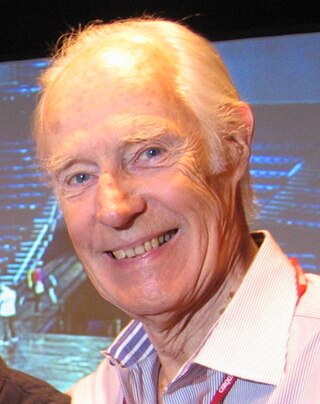
Sir George Henry Martin was an English record producer, arranger, composer, conductor, and musician. He was commonly referred to as the "fifth Beatle" because of his extensive involvement in each of the Beatles' original albums. Martin's formal musical expertise and interest in novel recording practices facilitated the group's rudimentary musical education and desire for new musical sounds to record. Most of their orchestral and string arrangements were written by Martin, and he played piano or keyboards on a number of their records. Their collaborations resulted in popular, highly acclaimed records with innovative sounds, such as the 1967 album Sgt. Pepper's Lonely Hearts Club Band—the first rock album to win a Grammy Award for Album of the Year.

Geoffrey Ernest Emerick was an English sound engineer and record producer who worked with the Beatles on their albums Revolver (1966), Sgt. Pepper's Lonely Hearts Club Band (1967) and Abbey Road (1969). Beatles producer George Martin credited him with bringing "a new kind of mind to the recordings, always suggesting sonic ideas, different kinds of reverb, what we could do with the voices".

Abbey Road Studios is a music recording studio at 3 Abbey Road, St John's Wood, City of Westminster, London. It was established in November 1931 by the Gramophone Company, a predecessor of British music company EMI, which owned it until Universal Music Group (UMG) took control of part of it in 2013. It is ultimately owned by UMG subsidiary Virgin Records Limited.

Waves Audio Ltd. is an Israeli developer and supplier of professional digital audio signal processing technologies and audio effects, used in recording, mixing, mastering, post production, broadcast, and live sound. The company's corporate headquarters and main development facilities are located in Tel Aviv, with additional offices in the United States, China, and Taiwan, and development centers in India and Ukraine. In 2011, Waves won a Technical Grammy Award.
"Only a Northern Song" is a song by the English rock band the Beatles from their 1969 soundtrack album Yellow Submarine. Written by George Harrison, it was the first of four songs the band provided for the 1968 animated film Yellow Submarine, to meet their contractual obligations to United Artists. The song was recorded mainly in February 1967, during the sessions for Sgt. Pepper's Lonely Hearts Club Band, but the Beatles chose not to include it on that album. The group completed the recording two months later, straight after finishing work on Sgt. Pepper.
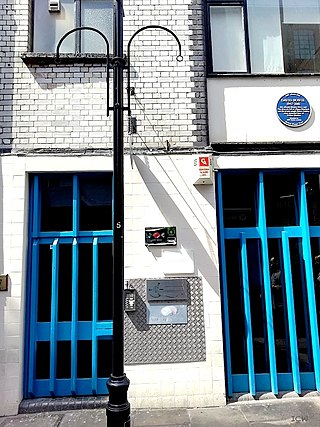
Trident Studios was a British recording facility, located at 17 St Anne's Court in London's Soho district between 1968 and 1981. It was constructed in 1967 by Norman Sheffield, drummer of the 1960s group the Hunters, and his brother Barry.
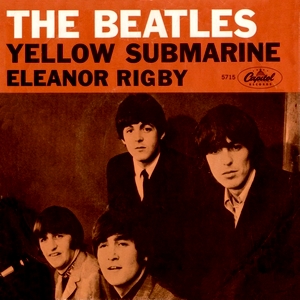
"Yellow Submarine" is a song by the English rock band the Beatles from their 1966 album Revolver. It was also issued on a double A-side single, paired with "Eleanor Rigby". Written as a children's song by Paul McCartney and John Lennon, it was drummer Ringo Starr's vocal spot on the album. The single went to number one on charts in the United Kingdom and several other European countries, and in Australia, Canada and New Zealand. It won an Ivor Novello Award for the highest certified sales of any single written by a British songwriter and issued in the UK in 1966. In the US, the song peaked at number two on the Billboard Hot 100 chart.
Duophonic sound was a trade name for a type of audio signal processing used by Capitol Records on certain releases and re-releases of mono recordings issued during the 1960s and 1970s. In this process monaural recordings were reprocessed into a type of artificial stereo. Generically, the sound is commonly known as fake stereo or mock stereo. Capitol Studios' staff engineer John Palladino created the process at the request of the record companies.

Yellow Submarine is the tenth studio album by the English rock band the Beatles, released in January 1969. It is the soundtrack to the animated film of the same name, which premiered in London in July 1968. The album contains six songs by the Beatles, including four new songs and the previously released "Yellow Submarine" and "All You Need Is Love". The remainder of the album is a re-recording of selections from the film's orchestral soundtrack by the band's producer, George Martin.

Yellow Submarine Songtrack is a compilation/soundtrack album by the English rock band the Beatles, released in 1999 to coincide with a re-release of the 1968 animated film Yellow Submarine that same year. The film was re-released on 13 September 1999 in the United Kingdom and the following day in the United States. In contrast with other Beatles remasters available, the songs were fully remixed by Peter Cobbin at Abbey Road Studios from the original multitrack tapes, something not done for the original CD release of the Beatles catalogue in the late 1980s, nor the 2009 remastered albums.

The studio practices of the Beatles evolved during the 1960s and, in some cases, influenced the way popular music was recorded. Some of the effects they employed were sampling, artificial double tracking (ADT) and the elaborate use of multitrack recording machines. They also used classical instruments on their recordings and guitar feedback. The group's attitude towards the recording process was summed up by Paul McCartney: "We would say, 'Try it. Just try it for us. If it sounds crappy, OK, we'll lose it. But it might just sound good.' We were always pushing ahead: Louder, further, longer, more, different."

Recording The Beatles: The Studio Equipment and Techniques Used To Create Their Classic Albums is a book by Kevin Ryan and Brian Kehew, published by Curvebender Publishing in September 2006. Written over the course of a decade, the book addresses the technical side of the Beatles' sessions and was written with the assistance of many of the group's former engineers and technicians, chief among them Peter K. Burkowitz, designer of the REDD mixing console.
The recordings made by the Beatles, a rock group from Liverpool, England, from their inception as the Quarrymen in 1957 to their break-up in 1970 and the reunion of their surviving members in the mid-1990s, have huge cultural and historical value. The studio session tapes are kept at Abbey Road Studios, formerly known as "EMI Recording Studios," where the Beatles recorded most of their music. While most have never been officially released, their outtakes and demos are seen by fans as collectables, and some of the recordings have appeared on countless bootlegs. The only outtakes and demos to be officially released were on The Beatles Anthology series and its tie-in singles and anniversary editions of their studio albums. Bits of some previously unreleased studio recordings were used in The Beatles: Rock Band video game as ambient noise and to give songs studio-sounding beginnings and endings. In 2013, Apple Records released the album The Beatles Bootleg Recordings 1963, which includes previously unreleased outtakes and demos from 1963, to stop the recordings from falling into the public domain.
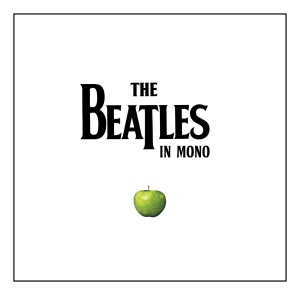
The Beatles in Mono is a boxed set compilation comprising the remastered monaural recordings by the Beatles. The set was released on compact disc on 9 September 2009, the same day the remastered stereo recordings and companion The Beatles were also released, along with The Beatles: Rock Band video game. The remastering project for both mono and stereo versions was led by EMI senior studio engineers Allan Rouse and Guy Massey.
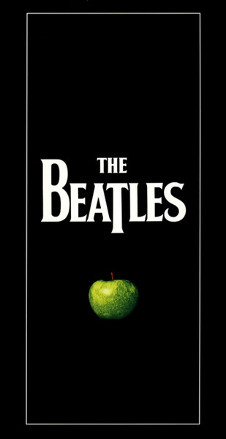
The Beatles (The Original Studio Recordings), also known as The Beatles: Stereo Box Set, is a box set compilation comprising all remastered recordings by English rock band the Beatles. The set was issued on 9 September 2009, along with the remastered mono recordings and companion The Beatles in Mono and The Beatles: Rock Band video game. The remastering project for both mono and stereo versions was led by EMI senior studio engineers Allan Rouse and Guy Massey. The Stereo Box also features a DVD which contains all the short films that are on the CDs in QuickTime format. The release date of 09/09/09 is related to the significance to John Lennon of the number nine.
Send tape echo echo delay is a technique used in magnetic tape sound recording to apply a delay effect using tape loops and echo chambers.
A tape operator or tape op, also known as a second engineer, is a person who performs menial operations in a recording studio in a similar manner to a tea boy or gopher. They may act as an apprentice or an assistant to a recording engineer and duties can consist of threading audio tape, setting up microphones and stands, configuring MIDI equipment and cables, and sometimes pressing the relevant transport controls on the recorder or digital audio workstation. Abbey Road Studios always assigned at least one tape op to each recording session.

The EMI TG12345 was a mixing console designed by EMI for their Abbey Road Studios, which was used to mix several influential albums, including The Beatles' Abbey Road and Pink Floyd's The Dark Side of the Moon.
The EMI REDD .17, .37 and .51 were vacuum-tube-based mixing consoles designed by EMI for their Abbey Road Studios. They were used to mix several influential albums, including most of the Beatles' albums and the first two Pink Floyd albums.

The King's Speech (Original Motion Picture Soundtrack) is the soundtrack to the Academy Award-winning film The King's Speech, released by Decca Records on 22 November 2010. Alexandre Desplat composed the film's original music. The score consisted of minimalistic sounds created with piano and strings, and a limited orchestra with oboe and harp being used. It was recorded using old microphones from the EMI archives, used by the royal family, in order to create a vintage and dated sound. The minimalistic use of the music is used to describe Colin Firth's character, the future King George VI.
References
- 1 2 3 4 5 6 7 "About Peter Cobbin". Such Sweet Thunder. Archived from the original on 15 March 2022. Retrieved 15 March 2022.
- 1 2 Tingen, Paul (December 2012). "Peter Cobbin & Kirsty Whalley". Sound on Sound . Retrieved 15 March 2022.
- 1 2 "The Art of Recorded Sound: Peter Cobbin and Kirsty Whalley in conversation". British Library. 26 February 2018. Retrieved 15 March 2022.
- 1 2 3 4 5 "Pete Cobbin and Kirsty Whalley - Such Sweet Thunder - UK". Merging Technologies. Archived from the original on 15 March 2022. Retrieved 15 March 2022.
- ↑ "Studio Engineers // Peter Cobbin". Abbey Road Studios. Archived from the original on 22 January 2008. Retrieved 15 March 2022.
- ↑ 11 July 2018. "Beatles film 'Yellow Submarine' stops in Seattle for its 50th-anniversary theatrical run". The Seattle Times . Retrieved 15 March 2022.
{{cite web}}: CS1 maint: numeric names: authors list (link) - 1 2 3 Inglis, Sam (May 2011). "Peter Cobbin: Recording Music For The King's Speech". Sound on Sound . Retrieved 15 March 2022.
- ↑ Chevalier, Zoe; Watson, Tim (25 November 2021). "Abbey Road Studios, where The Beatles recorded, celebrates 90 years". ABC News. Retrieved 15 March 2022.